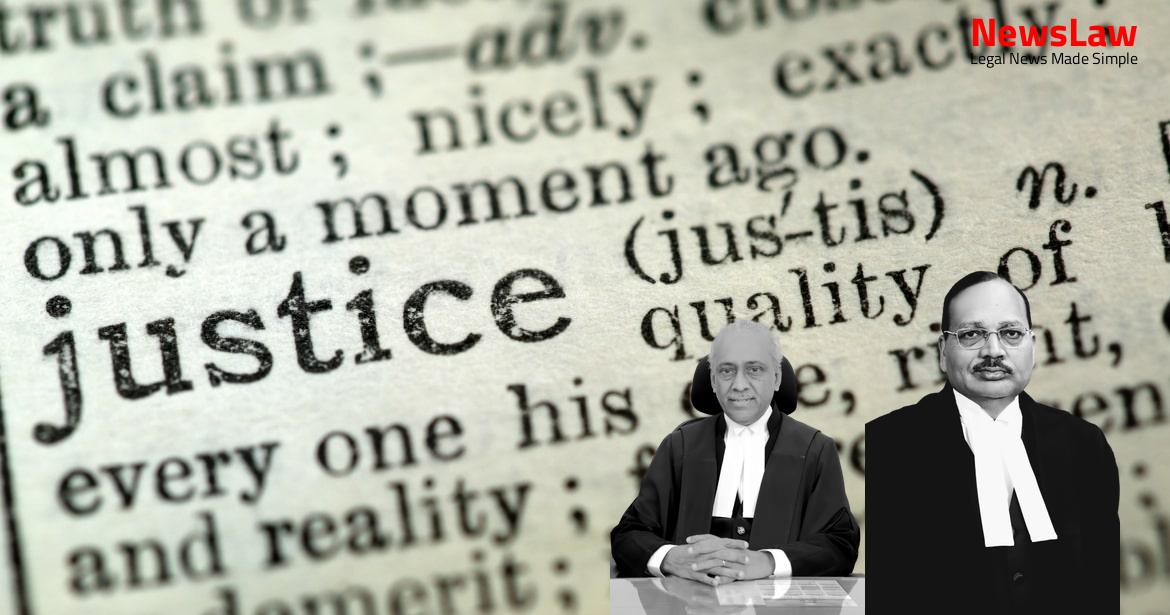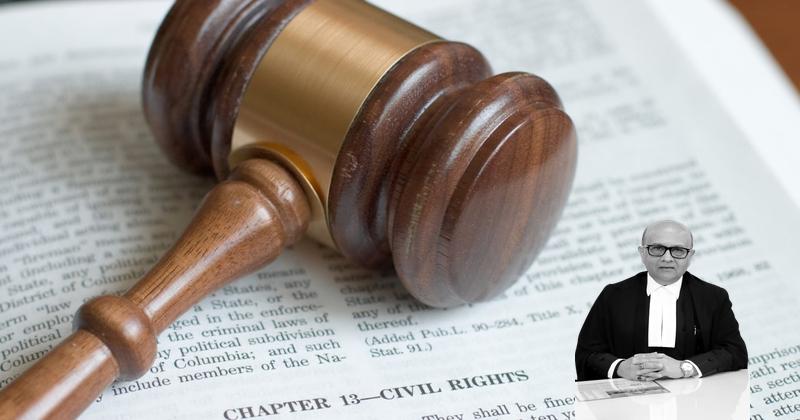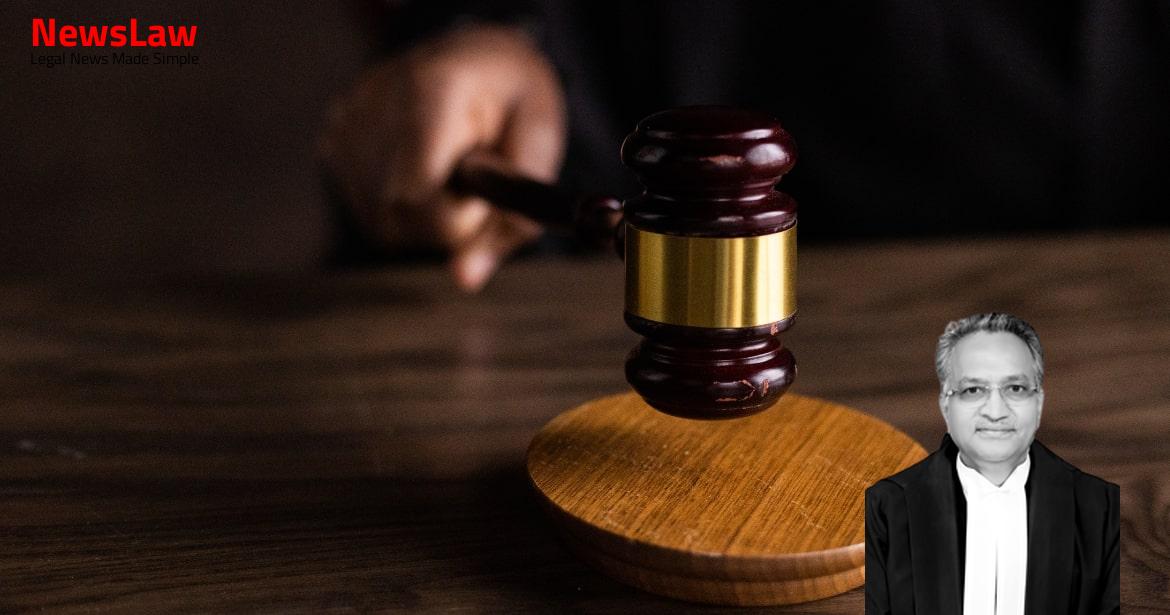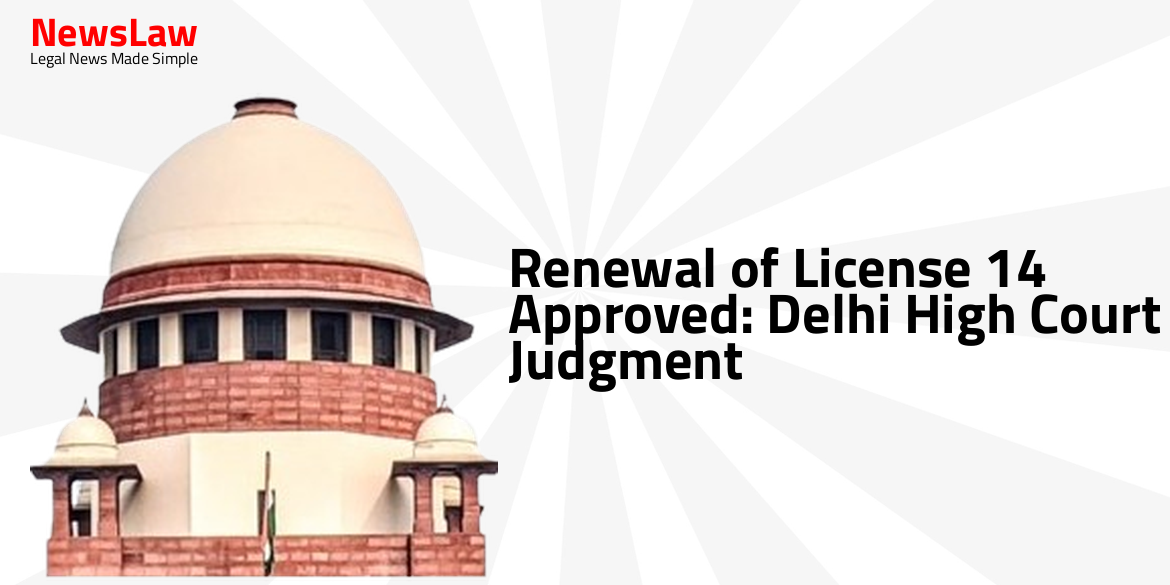Delve into the complex legal battle surrounding the Society Elections case, where the High Court criticized the rushed justice and flawed outcomes in the election dispute. Learn about the challenges faced by the Executive Committee and the continuous litigation before various forums, including Civil Courts and the Registrar of Societies. Discover the intricacies of the case and the Supreme Court of India’s judgement on this legal saga.
Facts
- The objection to the maintainability of the revision was disputed by the High Court based on previous decisions on supervisory jurisdiction.
- The High Court criticized the trial Court for expediting the hearing and passing an order on an injunction application within a short period of time.
- Despite objections on the availability of an appellate remedy, the High Court still allowed the Civil Revision Petition and overturned the injunction order.
- The plaintiffs are appealing against the High Court’s decision to vacate the interim injunction order.
- The High Court deemed this case as an example of rushed justice resulting in flawed outcomes.
- Respondent Nos. 1 & 2 filed a Civil Revision instead of a Regular Appeal.
- Appellants filed a suit seeking various reliefs related to the Society.
- Interlocutory Applications were filed seeking injunction orders.
- Trial Court granted injunction restraining meetings of the General Body and Executive Committee.
- Trial Court considered pleadings and documents from both sides before granting the injunction.
- Fifth defendant filed a Regular Appeal against the injunction order.
- Appellants filed another suit seeking declaration and injunction against sixth defendant.
- Counter affidavit with documents was filed by contesting defendants.
Also Read: Jurisdiction and Powers of NCLT: An Interpretation by the Supreme Court Of India
Analysis
- Order XXXIX Rule 3A of the Code of Civil Procedure mandates disposal of injunction applications within 30 days if granted without notice.
- Appellate remedy under CPC is a near total bar for cases involving civil courts.
- Distinction must be made between cases with alternative remedies in civil courts and cases with remedies under special enactments.
- High Court erred in overlooking the availability of an appeal in C.M.A. No 1 of 2018 before the Sub-Court.
- High Court should have recognized the direct appeal remedy under section 104 (1)(i) read with Order XLIII, Rule 1 (r) of the Code of Civil Procedure.
- Second respondent’s claims in the rejoinder regarding challenging the order came after a year.
- Observation of the High Court that the trial Court proceeded in haste was not justified.
- The High Court overlooked that the second respondent was already restrained by the Sub-Court from functioning as the Secretary.
- Orders of civil court are treated differently from orders of authorities or tribunals.
- Availability of a remedy under the Code of Civil Procedure deters the High Court from exercising its power of superintendence as a matter of discipline and prudence.
- A recognized principle is that the High Court should direct parties to avail themselves of remedies under the CPC before resorting to a constitutional remedy.
- The High Court could have remanded the matter back if convinced the trial Court proceeded hastily.
- High Court allowed the application for injunction without recording any finding on merits.
- Finding the line between speedy disposal and hurried dispatch with mathematical precision is not possible.
- The Trial Court’s order dealt with rival contentions and was passed on merits after due consideration of pleadings and documents.
Decision
- The Executive Committee filed for reliefs following the rejection of amendment by the District Registrar
- Advocate Commissioner appointed to convene General Body and Executive Committee elections as per bye-laws
- High Court order and elections set aside, Trial Court order to be restored
- Second respondent proceeded with meetings and elections despite High Court order
- Appellate court notes continuous litigation before various forums due to General Body meetings and elections
- List of litigations triggered by General Body meetings and elections presented
- Series of petitions and suits filed in Civil Courts, Registrar of Societies, and High Court
Also Read: Jurisdictional Analysis in Transfer Petition
Case Title: VIRUDHUNAGAR HINDU NADARGAL DHARMA PARIBALANA SABAI Vs. TUTICORIN EDUCATIONAL SOCIETY
Case Number: C.A. No.-007764-007764 / 2019



